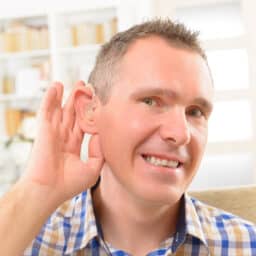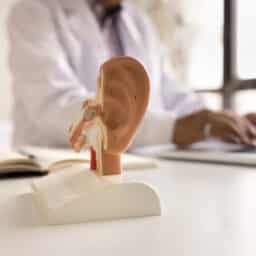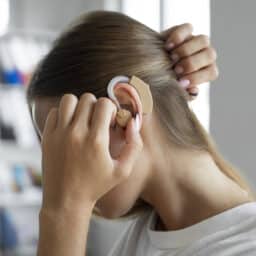Tips To Improve Hearing Aid Comfort

Approximately 28.8 million U.S. adults could benefit from the use of hearing aids. Embracing the hearing aid journey, filled with vibrant sounds and crystal-clear conversations, is an exciting adventure. However, amidst the joy, it’s natural to experience some initial discomfort as you adapt to wearing your new devices. Let’s explore some tips to ensure comfort…
What To Know About Tinnitus Counseling

Tinnitus is a condition characterized by hearing ringing or buzzing sounds when no actual sound is present. There is no cure, however, there are therapeutic approaches that have been shown to help manage its symptoms effectively. Among these, Cognitive Behavioral Therapy (CBT) stands out as a recommended treatment by leading organizations such as the American…
What To Know About Hearing Loss Surgeries

Nearly 30 million people age 12 or older has hearing loss in the United States. When not addressed, it has the potential to negatively impact quality of life. There are varied treatment options for hearing loss, depending on its cause and in some cases, surgical intervention is necessary. Depending on the form of hearing loss,…
New Research Indicates Link Between Zinc and Hearing Loss

Research to understand noise-induced hearing loss has achieved a significant milestone, thanks to a recent finding. With approximately 15% of adults in the U.S. affected by hearing loss, often due to continuous exposure to excessive noise, new research could pave the way for reducing exposure-related hearing loss. The Zinc Connection Researchers at the University of…
Recognizing the Signs of Tinnitus and When To Seek Help

Tinnitus, a condition characterized by the perception of sounds like ringing, buzzing or humming in the ears, affects approximately 15% of the global population. While occasional ear ringing is common and often temporary, persistent tinnitus can significantly disrupt daily life. Knowing when to seek assistance for tinnitus is vital for effectively managing the condition and…
GRAND OPENING OF OUR NEW HEARING HEALTH CENTER OFFICE
Our new Hearing Health Center office in Torrance offers numerous features and amenities that make getting the hearing help you need easier and more comfortable—come check it out for yourself, with doors opening on March 1, 2024. Patients at the Torrance office will enjoy access to: Patients should expect the same services and care at…
How Are Stress and Hearing Loss Connected?

It’s no secret that stress can wreak havoc on our bodies, but what’s less known is how it can quietly undermine our hearing health. Understanding the connection between chronic stress and auditory issues is crucial for maintaining not just our overall health, but also our ability to hear long-term. Stress And Your Ears The inner…
Should I Wear a Cochlear Implant and A Hearing Aid

A cochlear implant is an electronic device that is surgically implanted behind the ear. It sends electrical impulses to the hearing nerve, resulting in better hearing clarity, particularly in speech. A hearing aid is placed on or in the ear and amplifies sounds so the sensory sounds can be stimulated properly for hearing. Depending on…
Why Are Hearing Aids a Great Gift?

The holiday season is a time when the quest for meaningful gifts takes center stage. While you may have completed your gift-giving for the season, you might consider gifting hearing aids as a future gift. In the United States alone, about 28.8 million adults stand to benefit from the use of hearing aids. Beyond the…
Tips To Help You Talk About Your Tinnitus

Tinnitus, a condition characterized by ringing, buzzing, pulsing or whooshing sounds in one or both ears, can significantly impact the lives of approximately 10% of the U.S. adult population. Knowing how to talk about your tinnitus can help ensure you get the most beneficial and accurate symptom management help possible. Let’s take a look at…